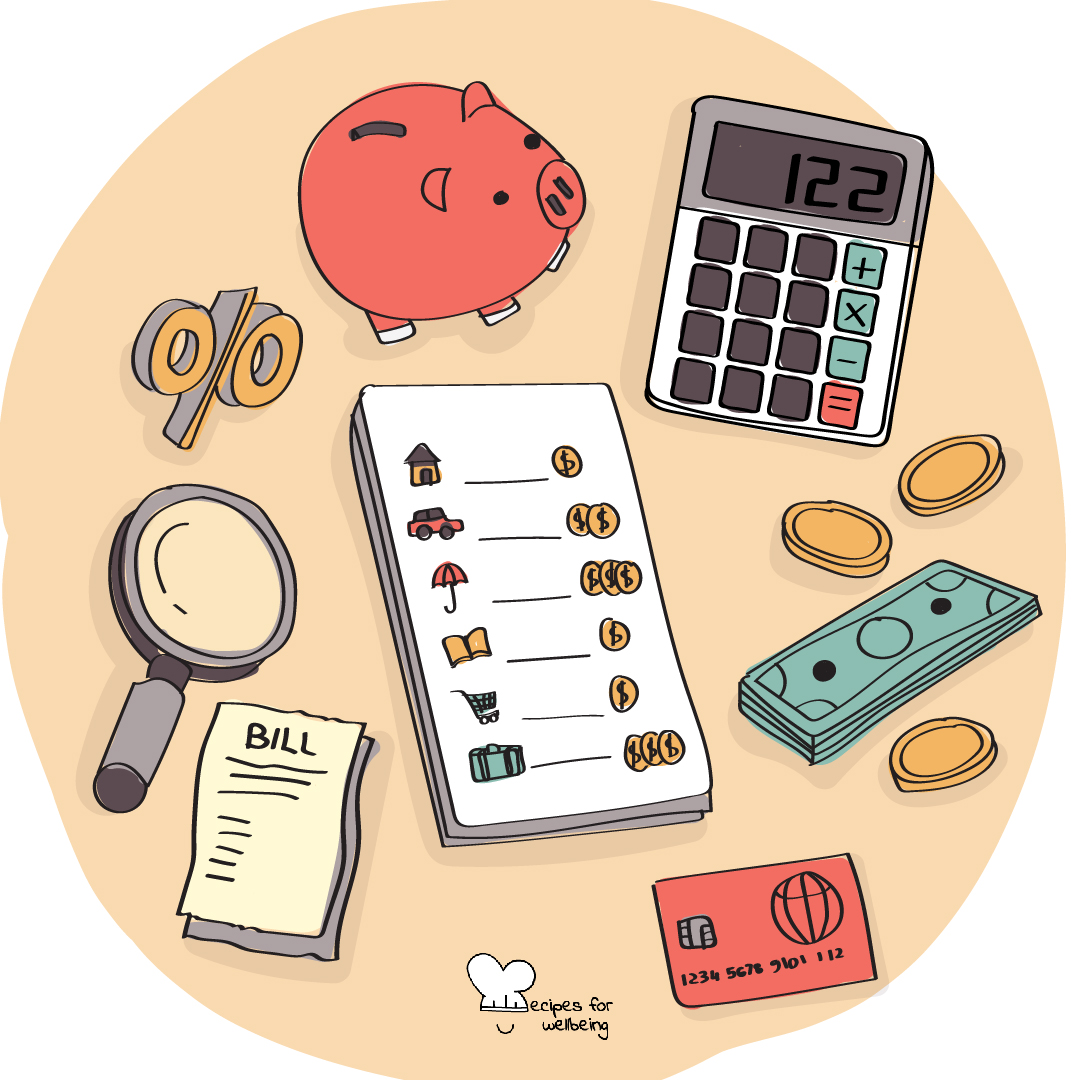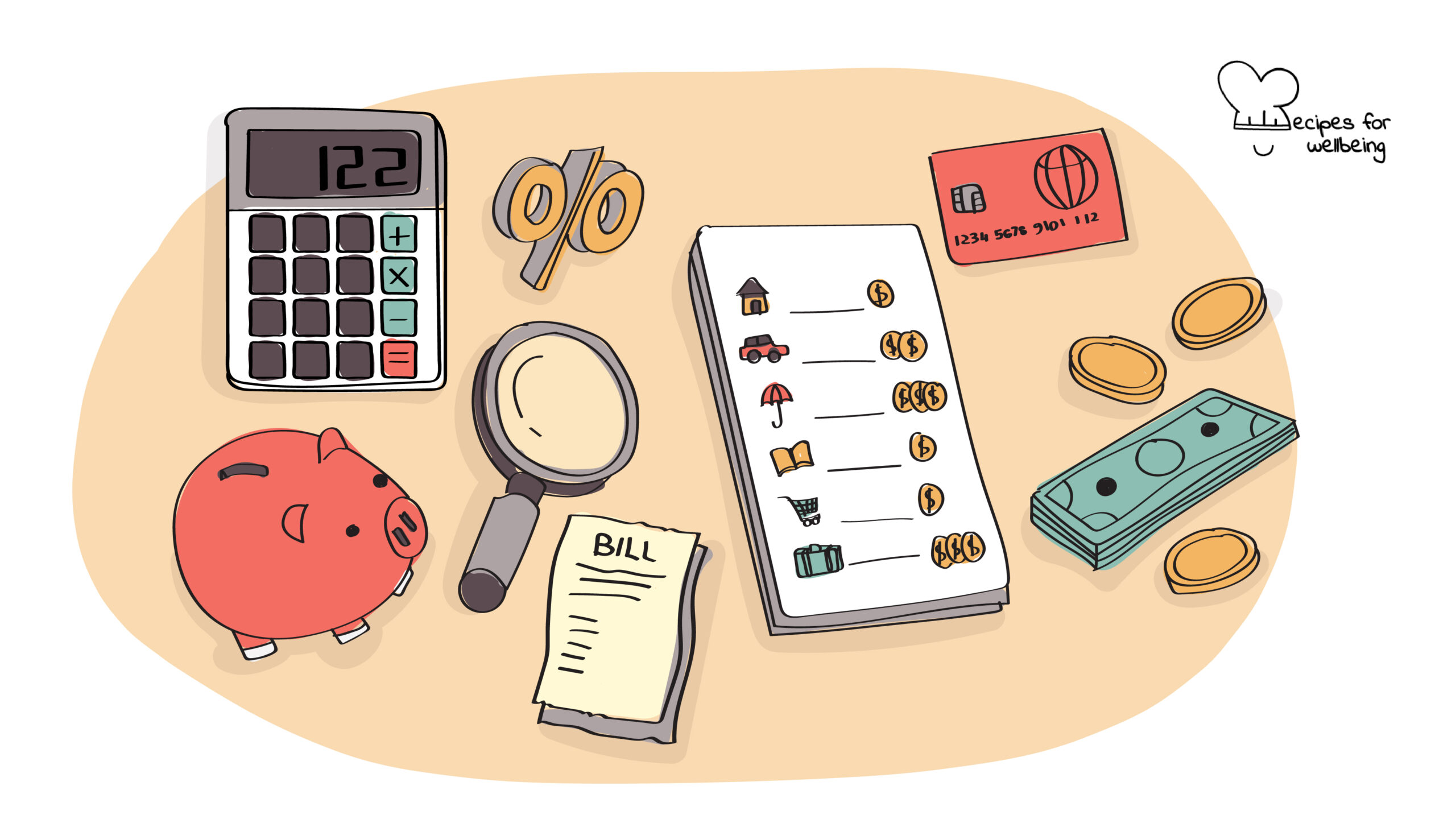
Healthy money habits
Good habits are worth being fanatical about. ―John Irving
👥 Serves: 1 person
🎚 Difficulty: Easy
⏳ Total time: 11-30 minutes, Ongoing
🥣 Ingredients: Access to your bank account(s)
🤓 Wholebeing Domains: Accomplishments, Discomfortability
💪 Wholebeing Skills: Goal-setting, Planning, Self-regulation

Healthy money habits
📝 Description
A financial self-care routine to improve your finances.
Have you ever considered how self-care and wellness fit into your finances? Practising financial self-care and healthy money habits presents numerous benefits to your wellbeing, from helping you avoid unwanted surprises such as a missed bill, to enabling you to focus on your long-term financial goals. Additionally, if practiced over time, these habits help decrease your stress and anxiety and help you to feel in control of your money, which in turn increases your sense of safety and financial stability. The best part is that this recipe takes only 30 minutes!
And if you would like to take your healthy money habits to the next level, we invite you to also try out our recipe “Tips for financial budgeting” to find a budget that suits your personality.
This recipe has been created by our wellbeing content writer collaborator Marissa Del Mistro.
👣 Steps
Step 1 – Check your bank account(s) (10’ a week)
How often do you check your bank account(s)? It is a pretty simple habit to better understand your spending habits, review your balance, and scan your finances. If you have a smartphone, download your banking app directly to your phone for ease of access.
Regularly checking your account is also a great way to monitor for any potential fraudulent transactions. For context, The European Central Bank reported that the total level of card fraud losses amounted to €1.8 billion in 2016. If you are concerned about any transactions on your accounts, contact your bank immediately.
Step 2 – Review and automate (10’ a week)
If you have ever missed a bill date, you know how stressful it can be. Organise due-date alerts with your bank/credit card, so you always know when your next bill is due.
To avoid missing payments, try to automate them. The majority of bills can be automated by logging into your online banking and setting it up in a few minutes. If you have some bills that you can’t automate through your bank, try contacting the company and asking them to bill you directly each month. Should neither of these options work, you can block off 10 minutes a week to get your bills paid manually.
Step 3 – Set financial goals (10’ regularly)
Make some time to set your financial goals and review them on a regular basis. Whatever your financial goals are, having them clear cut will keep you on track and motivated to achieve them. Goals should always be “SMART”:
- Specific
- Measurable
- Achievable
- Relevant
- Time-bound
For example, your financial goals might be:
- Paying off your €5,000 student loan debt in two years.
- Having a €5,000 emergency fund over the next six years.
- Savings €30,000 towards a down payment for a family home in four years.
- Investing 4% of your income each year.
- Saving €100 every month towards a self-care budget.
- Saving €8,000 in four years to attend a course at ___University/College.
- Paying off your €2,000 car loan in the next year.
- Saving €50 every month towards a travel/vacation fund.
These ten minutes on a regular basis should be spent creating new goals, reviewing current ones and ensuring that you are on track to reaching them.

